The Elinor Low Back by Claudio Bellini for Pedrali encapsulates the modern sensibilities that define our modern work lives. Alice Blackwood speaks with Mr Bellini at Orgatec.

#pedraliworkspaces at Orgatec 2022, photography by Frank Jankowski.
November 15th, 2022
Italian architect, Claudio Bellini, heads up a multidisciplinary design studio under his own name in Milan. Its specialisation is furniture and products and, as Mr Bellini is quick to confirm – there is no I in his studio. It is all ‘we’.
His team, talented and wide in vision, is flexible to each and every national and international project it undertakes. “We really want to understand where we’re working. It could be a different cultural context, a different economic situation, a different market. Understanding our clients’ needs [requires that we] really absorb and really listen to what they need,” says Bellini.
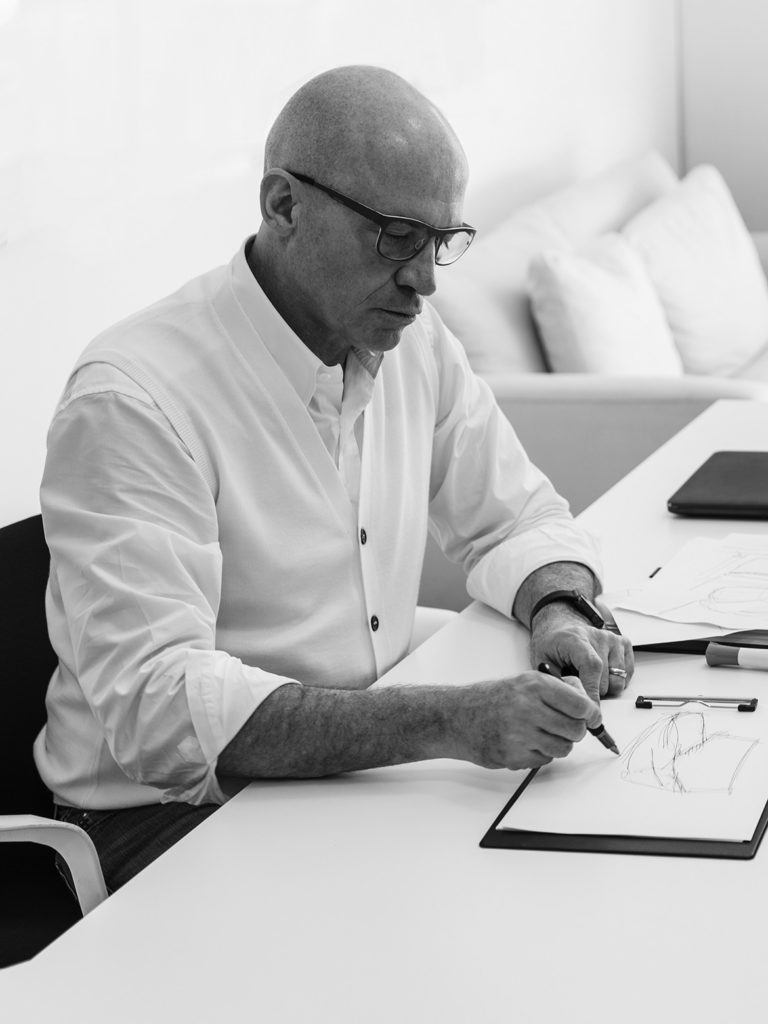
In the case of Bellini’s latest collaboration with Pedrali, a task chair named Elinor Low Back, Bellini and his team have deeply considered the modern conundrum that is work and users’ shifting sensibilities toward work life.
“I never stop seeing changes and evolution in the office environment,” says Bellini. “That is a standard, of course. I think also, the office space [and] the working area is … a kind of a mirror [and a] testing field for humans’ new lifestyle changes.”
The workplace reacts faster to shifts in lifestyle values and behaviours, while the home front, steeped in “deep heritage” tends to evolve more slowly. The office, by contrast, always has something new to offer, and for the designer to contemplate.
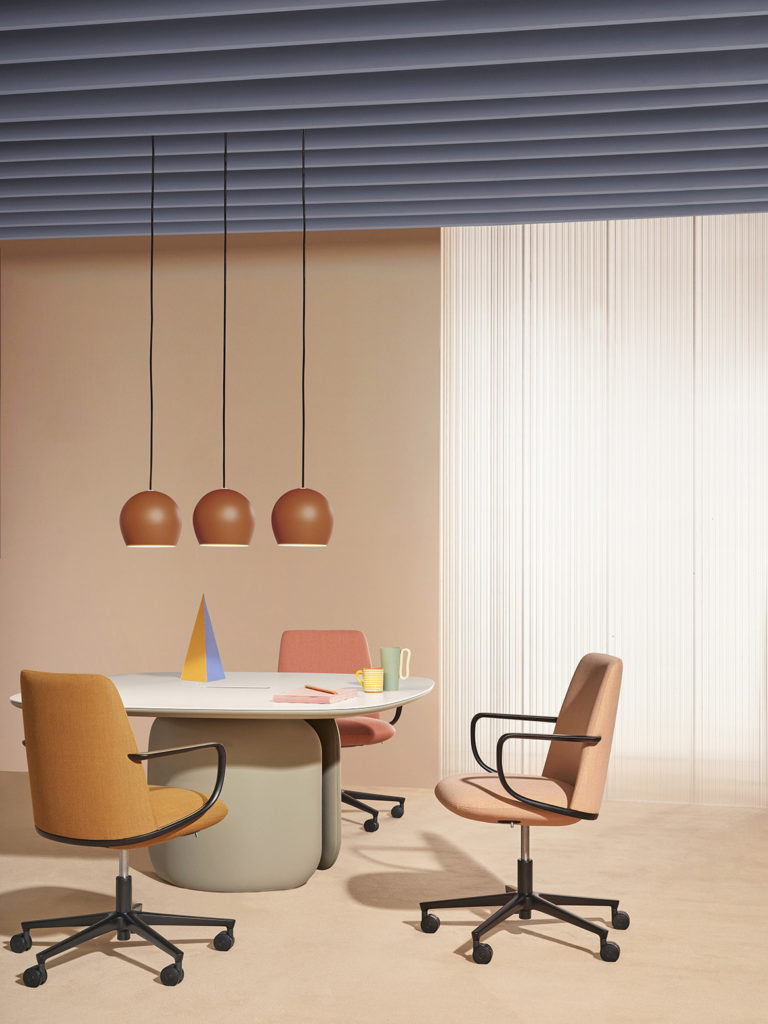
Bellini believes, with the development of the hybrid office, that the physical boundaries between home, office and third spaces are disappearing. “Why?” he asks. “Because, from one side, technology: new technology is more sophisticated and allows us to do things in a different way and that, of course, affects our life.
“On the other side, I think we have to keep in consideration that really the newest generation [of workers] are starting to conceive their life in a different way. There’s no more ‘live to work’. What we have to be able to achieve is that better balance between working [and other activities]. Our personal time has to be balanced better and I think we believe there’s a way today to manage this trend, which has been of course [brought on] by the recent pandemic.”
Pedrali, too, feels very strongly that workspaces today are dynamic, multi-faceted; and with the right furniture solutions they can be modular, multi-functional and sustainable. Wellbeing is fast becoming a primary objective for office furniture, thanks to increased contact time in line with more time spent on technology and digital engagement.
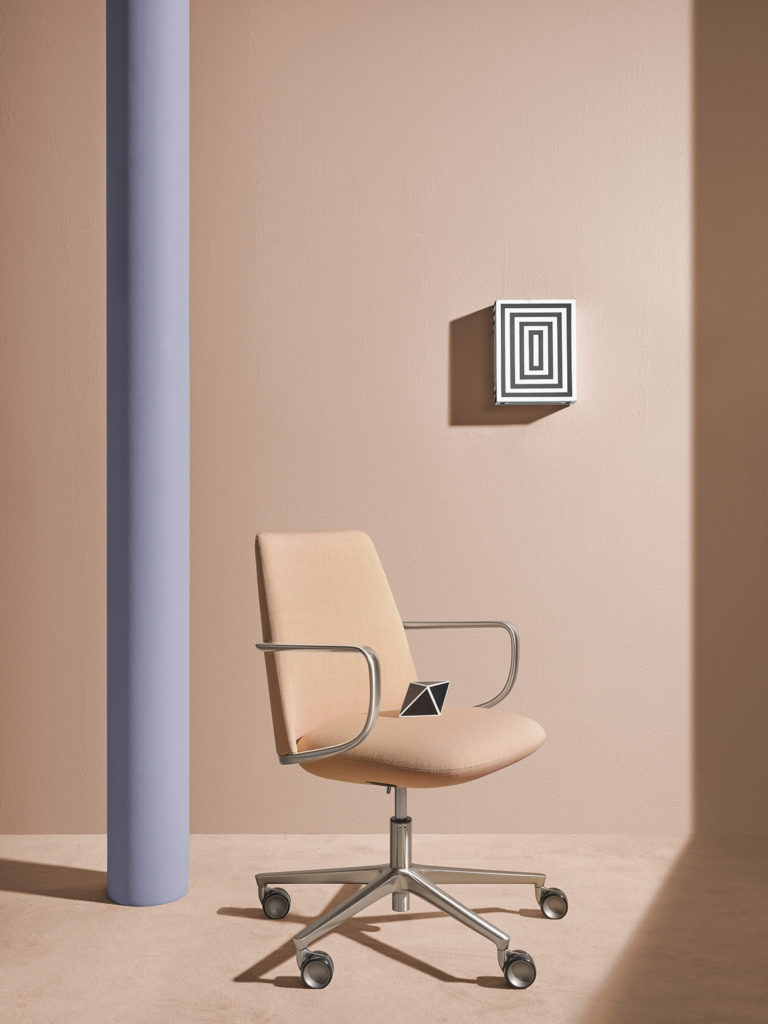
With the unfolding of the pandemic, workspaces have quickly extended into the home office, calling on furniture and furnishings to integrate discreetly and offer multiple, configurable functions.
“So we have a more fluid space at home,” says Bellini. “We have furniture that has to match a different attitude when we are at home. [And we’re] not just coming in at six o’clock or eight o’clock when we finish work, but [spending] full days there, or some days there. And so that’s what I see,” he says.
Considering all these observations, Bellini has designed the Elinor Low Back for Pedrali. It is a new version on an original executive chair from 2018, and it distinctly speaks to this “new sensibility” of work. The Elinor Low Back addresses our changing attitudes and approaches to working life, distinctively styled with sinuous lines.
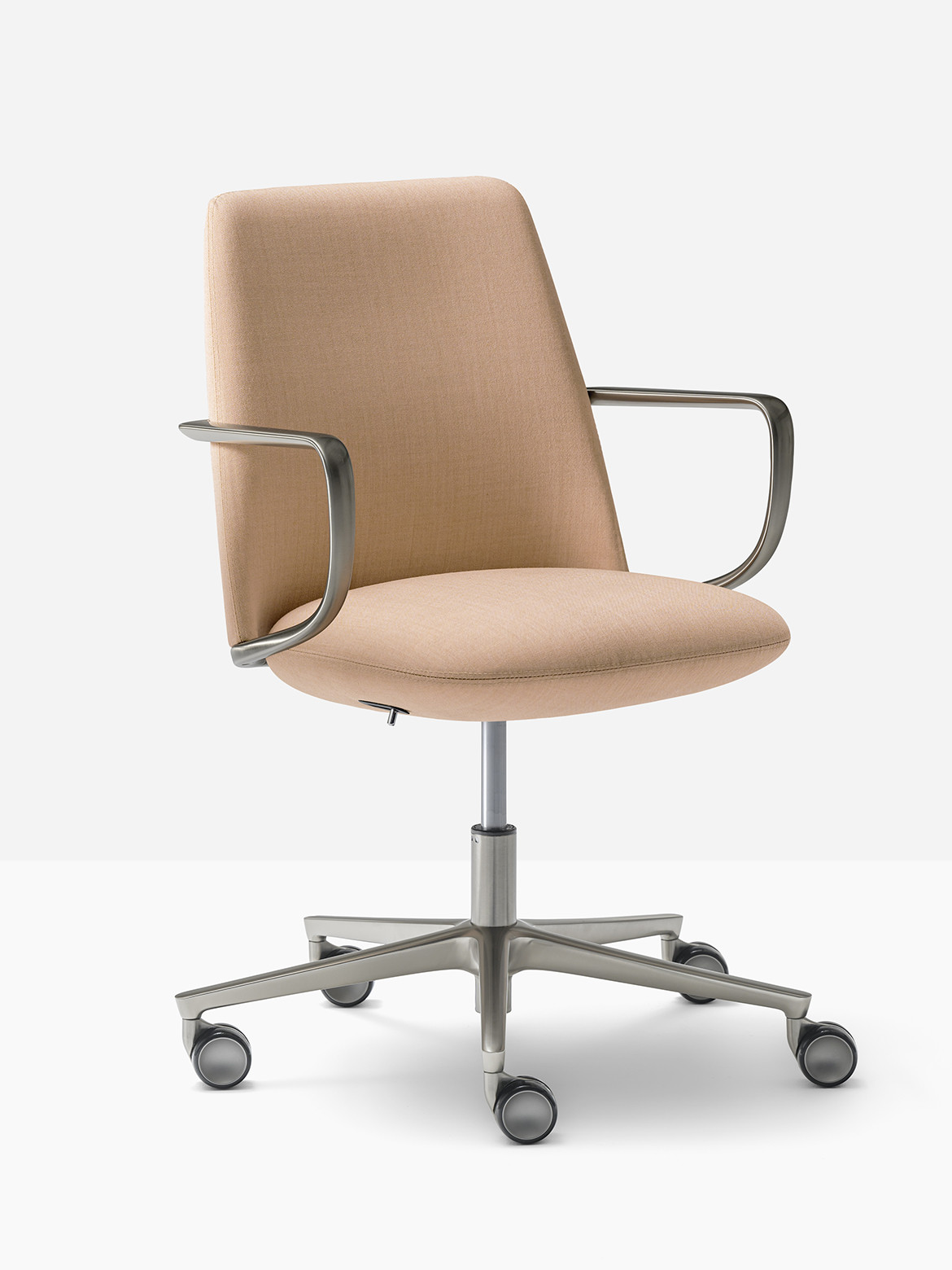

Its functionalities are not overt. Instead Bellini has chosen to inconspicuously integrate Elinor’s state-of-the-art components into the seat. Thus it looks quite simple compared to your more traditional task chair, and effortless – a piece that might fit into an office setting or a home setting.
The chair tilts according to the user’s body weight – a mechanism that is weight-activated, self-regulated and integrated into the upholstered seat. It is also notably body hugging, thanks to the polyurethane injected foam on the seat and back.
The relationship between Bellini and Pedrali has been fundamental to the success of this piece, says Bellini. With sensibilities aligned, they have together created a chair that is neither feminine nor masculine. Instead, its design language is appealing and welcoming. It could speak to anybody and fit into almost any situation. A modern proposition for a very modern way of work-life.
Claudio Bellini
claudiobellini.com
Pedrali
pedrali.com

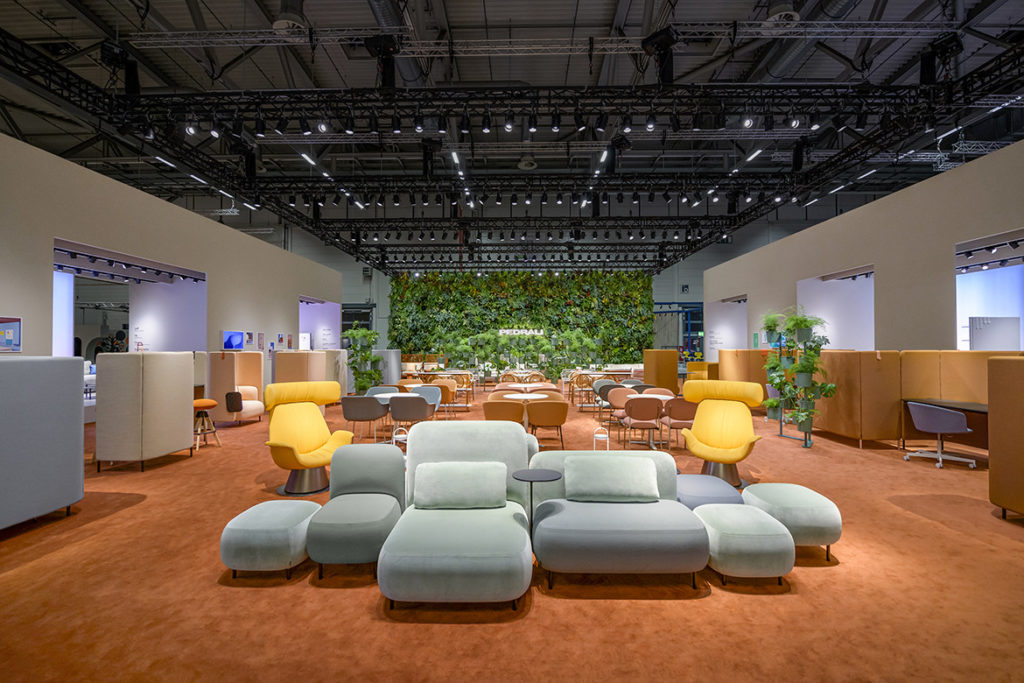
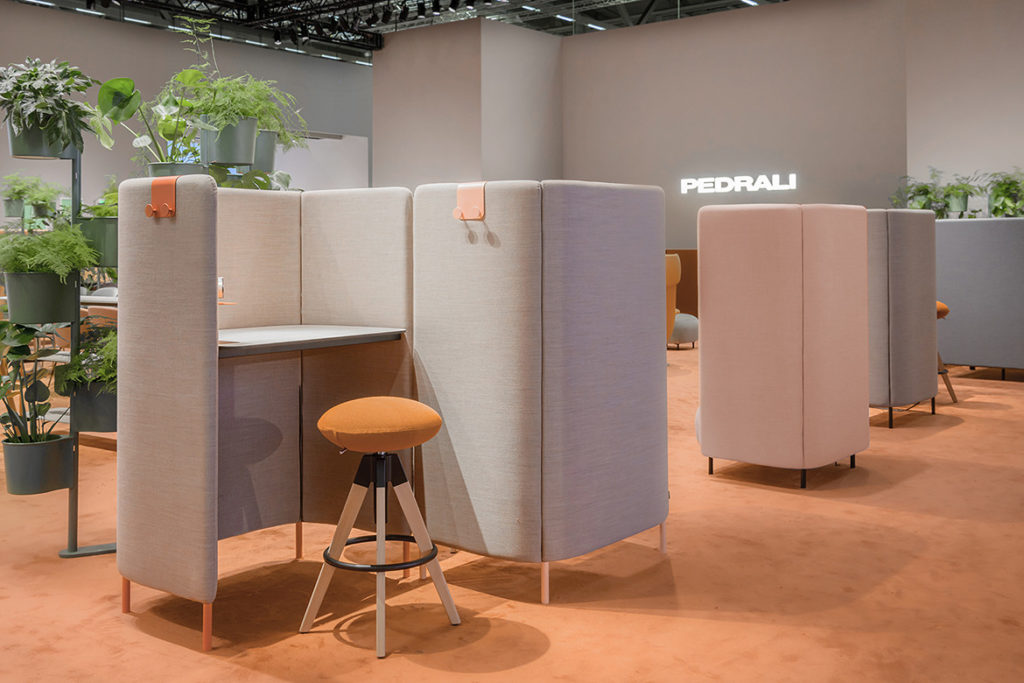
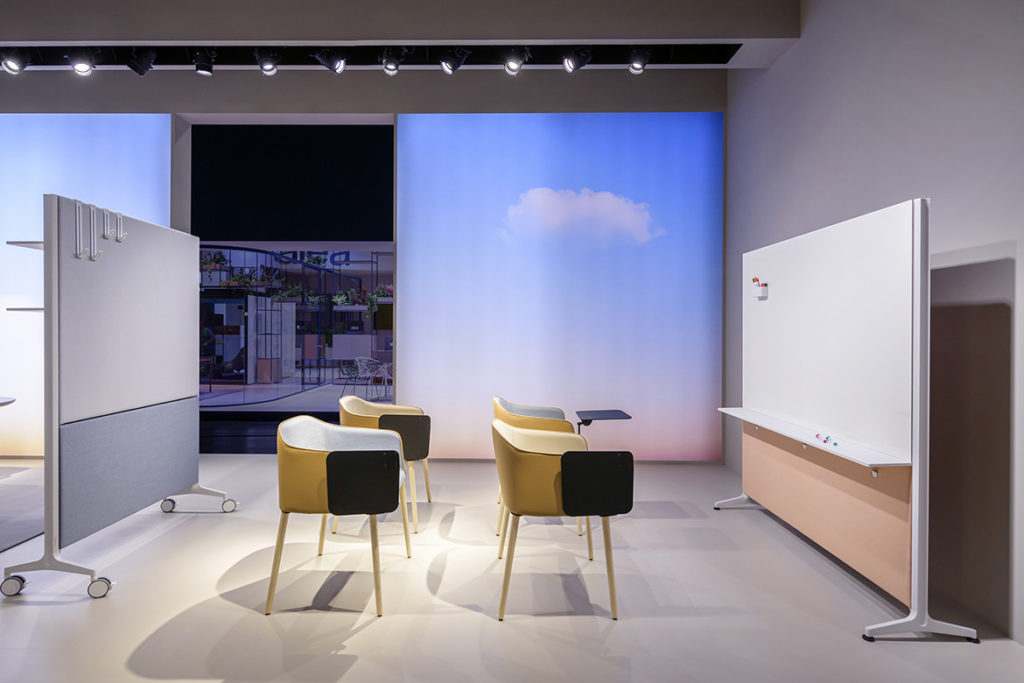
Above: #pedraliworkspaces at Orgatec 2022, photography Frank Jankowski.
We think you might like this article about the La Dolce Vita collection from Pedrali.
INDESIGN is on instagram
Follow @indesignlive
A searchable and comprehensive guide for specifying leading products and their suppliers
Keep up to date with the latest and greatest from our industry BFF's!
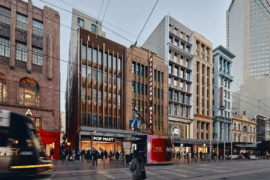
Merging two hotel identities in one landmark development, Hotel Indigo and Holiday Inn Little Collins capture the spirit of Melbourne through Buchan’s narrative-driven design – elevated by GROHE’s signature craftsmanship.
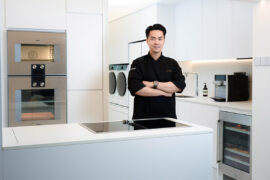
Now cooking and entertaining from his minimalist home kitchen designed around Gaggenau’s refined performance, Chef Wu brings professional craft into a calm and well-composed setting.
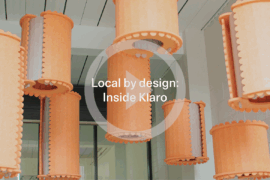
In an industry where design intent is often diluted by value management and procurement pressures, Klaro Industrial Design positions manufacturing as a creative ally – allowing commercial interior designers to deliver unique pieces aligned to the project’s original vision.
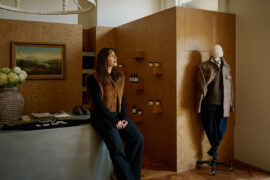
After eight years at Cera Stribley, Jessica Ellis launches her own studio, bringing a refined, hands-on approach to residential, hospitality and lifestyle interiors, beginning with the quietly confident Brotherwolf flagship in South Melbourne.
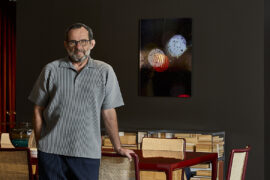
As Roberto Palomba visits Australia, Space Furniture unveils a 450-square-metre apartment installation that positions Kartell not as a collection of objects, but as a complete way of living.
The internet never sleeps! Here's the stuff you might have missed
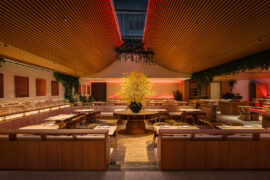
Spacemen Studio transforms a rare Kuala Lumpur bungalow into Sun & Moon, an all-day dining venue shaped by ambient light and curated material.
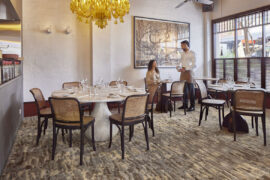
Finding inspiration from the textures, geometries and mineral hues of landscape formations, Godfrey Hirst has released a new carpet tile collection that offers earthly treasures to enhance commercial office and hospitality spaces.